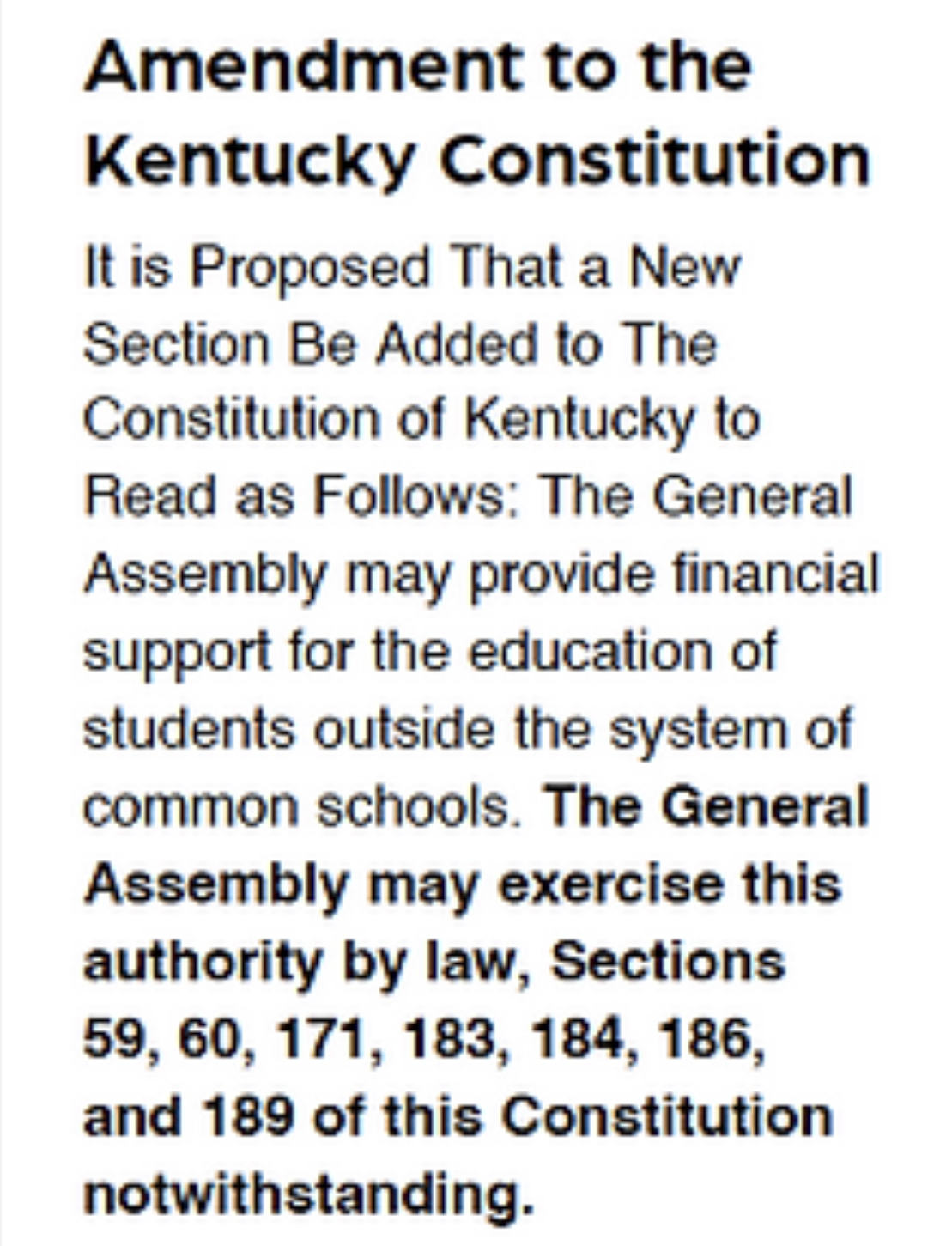
The Kentucky Lantern recently reported on an open records decision issued by the Attorney General on September 26 -- one of 213 decisions, to date, issued in 2024.
https://kentuckylantern.com/2024/09/30/republicans-request-for-pulaski-…
https://www.ag.ky.gov/Resources/orom/2024-OROM/Pages/default.aspx
Why is 24-ORD-209 newsworthy?
It is because it was issued in the midst of a political firestorm, and it confirms that when interpreted objectively -- free of politics, prejudice, and passion -- our nearly half-century old open records law works. The law is a dynamic framework that adapts to the factual context in which disputes are presented.
The requester, identified by The Lantern as a "Republican political strategist," asked that the Pulaski County School District produce
"all internal and external communications between school district board members and staff with references to 'Education Opportunities Constitutional Amendment (Ballot Question 2)’; ‘Amendment 2’; ‘Question 2’; ‘Yes on 2’ or ‘No on 2.’”
In 24-ORD-209, the Attorney General concluded that "the Pulaski County School District did not violate the Open Records Act when it determined a request posed an unreasonable burden under KRS 61.872(6)."
https://www.ag.ky.gov/Resources/orom/2024-OROM/2024/24-ORD-209.pdf
Noting that the requester "seeks all communications that have ever been sent by, to, or between all District employees" and provided "keywords [that] expand, rather than narrow, the scope of responsive records," the Attorney General reasoned:
"The District here has carried its burden under KRS 61.872(6) that reviewing over 18,000 responsive emails and their attachments [for statutorily protected FERPA and KFERPA content] places an unreasonable burden on the agency."
It is a fair outcome. The district sustained by clear and convincing evidence that fulfilling the request would impose an unreasonable burden.
https://apps.legislature.ky.gov/law/statutes/statute.aspx?id=51391
Despite this outcome, one retiring lawmaker issued an immediate call for revision of the open records law:
"We ought to update Kentucky’s open records act. These sorts of requests hit every agency, and have become budget and staff time drains, and are often filed as a nuisance, or attempts to harass or intimidate. The important power to request records is too often being abused."
https://x.com/kywhitney/status/1840797446340829325?s=46&t=W5grKM-bCiMjf…
While his motives may be honorable, the exiting lawmaker's suggestion poses an unimaginable threat to open government. Given the largely anti-open government climate in Kentucky's legislature, it is nothing less than an invitation to disaster.
The "unreasonable burden" statute "is intended to afford relief to public agencies where there is a pattern of harassing records requests aimed at disrupting essential agency functions, or, alternatively, where a single record request is such that production of those records would place an unreasonable burden on the agency."
The "clear and convincing" standard of evidence found in the "unreasonable burden" statute -- "a high proof threshold," according to Kentucky's highest court -- is the bulwark against frivolous invocation and agency abuse of the statute.
https://kyopengov.org/law/ag/1996/96-ord-155
https://caselaw.findlaw.com/court/ky-supreme-court/1387319.html
Within a year of the enactment of the open records law, the Attorney General recognized:
"Every request to inspect a public record causes some inconvenience to the staff of the public agency. No doubt some state, county and local agencies have found it necessary to employ additional staff since the enactment of the Open Records Law in order to comply with the provisions of the law. We believe it is the legislative intent that public employees exercise patience and long-suffering in making public records available for public inspection."
https://kyopengov.org/law/ag/1977/oag-77-151
Nevertheless, the Attorney General also observed:
"State agencies and employees are the servants of the people as stated in the Preamble to the Open Records Act, but they are the servants of all the people and not only of persons who may make extreme and unreasonable demands on their time."
https://kyopengov.org/law/ag/2013/13-ord-161 (OAG 76-375 cited in 13-ORD-161).
It is the tension between "the public's interest in securing access to agency records and the agency's interest in effectively executing its public function" that must be resolved in each dispute involving "unreasonable burden."
For example, the Attorney General recently rejected the University of Kentucky's arbitrary "Rule of 40," under which any request requiring 40 or more work hours qualifies as unreasonably burdensome.
https://kyopengov.org/law/ag/2024/24-ord-152
Again, a fair result in an a legal analysis that is uniquely fact intensive.
Respectfully, it is clear that the open records law works and that it is only with respect to disgruntled agencies that do not wish to work that the law does not work.
The Pulaski County Schools presented clear and convincing evidence to the Attorney General to prove that it does NOT fall in the latter category. And the Attorney General fairly and objectively resolved the unreasonable burden dispute in the Pulaski County Schools' favor, free of passion, prejudice, and politics.


